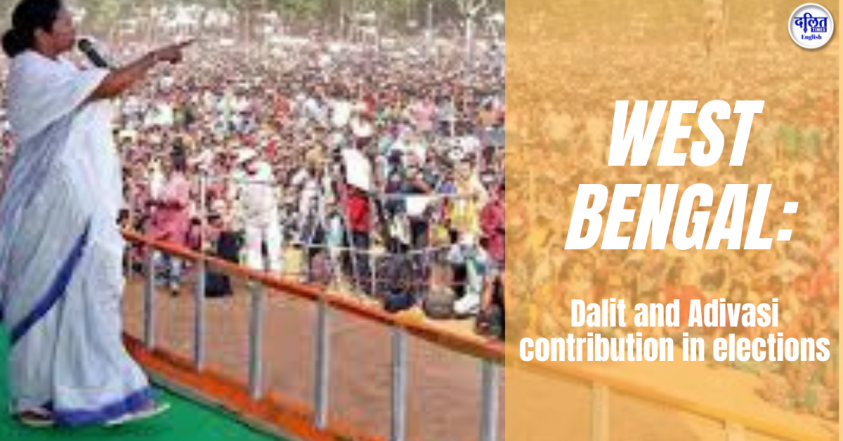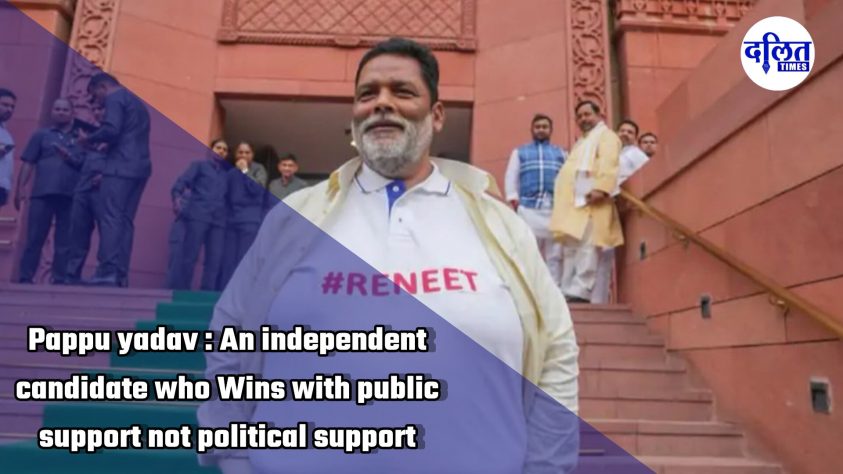In the 2024 Lok Sabha elections in West Bengal, the Dalit and Adivasi communities played an important role due to their large population and voting rights.
Story: Debarati Das
The Dalit community, which makes up about 23-25 per cent of the population of West Bengal, has considerable electoral influence. They are concentrated in places like North 24 Parganas, South 24 Parganas, Nadia and Murshidabad. Political parties actively seek Dalit votes through targeted campaigns, promises of development and representation. Issues such as caste-based discrimination, economic upliftment and education are high on their agenda.
Adivasis constitute about 6-7% of the state’s population and live mainly in areas like Jangalmahal (which includes Purulia, Bankura, Jhargram and West Midnapore) and parts of North Bengal (Alipurduar, Jalpaiguri). Land rights, forest rights and development are critical issues for the Adivasi community. Their support often depends on the parties’ commitment to these concerns. The participation of the Adivasi community in local governance along with the involvement in traditional tribal councils influences their voting behavior. Political parties often work with local Adivasi leaders to gain support.
The influence of Dalit leaders in parties such as the Trinamool Congress (TMC), the Bharatiya Janata Party (BJP) and the Left Front is significant. These leaders help mobilise their communities through demonstrations, local meetings and social media.
Also read: Why BJP upset over the victory of the Dalit leader in Ayodhya?
Reserved constituencies for Scheduled Castes (SC) and Scheduled Tribes (ST) ensure representation of Dalits and Adivasis in the Lok Sabha. There are several such constituencies in West Bengal, so their votes are crucial to win these seats. Parties use grassroots campaigns, promises of social security schemes and inclusion of community leaders in their candidate lists to appeal to Dalit and Adivasi voters. Popular movements and organizations advocating for the rights of Dalits and Adivasis influence electoral preferences. Their support or opposition can significantly affect the election results.
The large number of Dalits and Adivasis means that their votes can decisively influence the outcome in many constituencies, especially those reserved for Scheduled Castes (SC) and Scheduled Tribes (ST). Dalits and Adivasi voters often prioritize issues such as employment, education, health, land rights and social justice. Parties that address these issues through manifestos and promises tend to gain more support. Programs aimed at uplifting the government, such as reservations in education and jobs, financial assistance and infrastructure development in tribal areas, are critical factors influencing their voting behaviour.
Also read: Chandrashekhar Azad: A Dalit leader, but a leader for all
Historically, Dalits and Adivasis supported different parties at different times and were influenced by the promises and performance of those parties in solving their problems. For example, the Left has traditionally had a strong base among these communities. Still, in the recent elections, there have been significant changes towards the Trinamool Congress (TMC) and the Bharatiya Janata Party (BJP).
Jangalmahal, an area with a large Adivasi population has seen major political activity and promises of development and peace after years of rebellion and neglect. In North Bengal, areas like Alipurduar and Jalpaiguri often focus on issues related to the rights and development of tea garden workers, which directly affect the Adivasi community.
Given their significant numbers, Dalit and Adivasi votes often act as swing votes in tight constituencies. Their combined votes can have a significant impact on the overall outcome.
The Dalit and Adivasi communities of West Bengal are critical to the electoral process because of their large population and the strategic importance of their votes. Driven by their community-based issues and political engagement, their elections are key to the success of political parties in the state.



